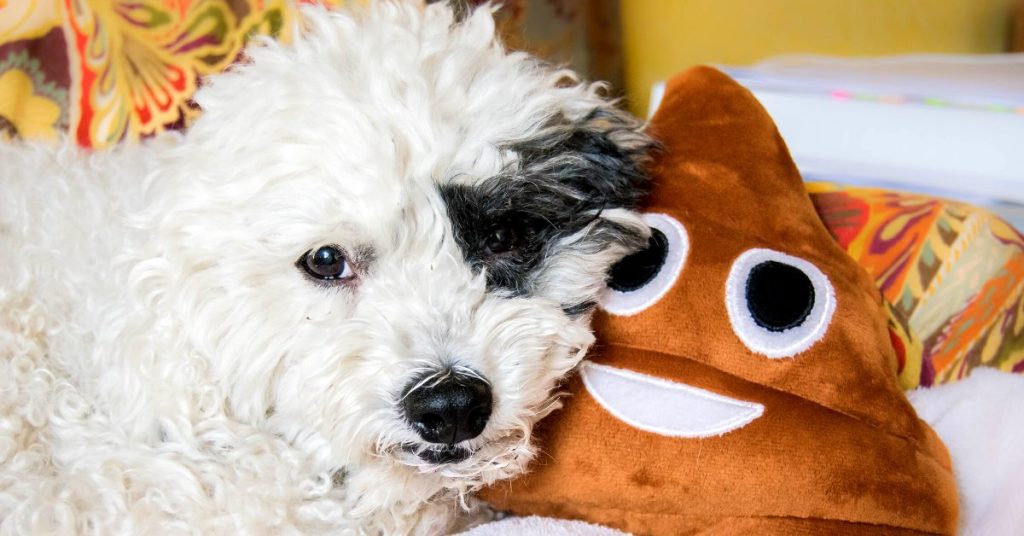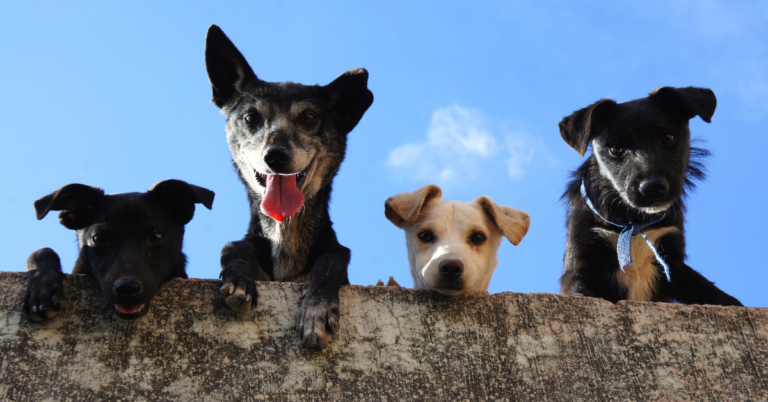Maggots in Dog Poop (What It Means)
Reviewed by Lauren Cannon, DVM
You might think the worst when you see maggots in dog poop.
It is alarming and gross, but you shouldn’t panic, as it is common in dogs, and can be treated.
Dog’s poop can tell you a lot about the dog’s health. So it’s a good idea to take a peek once in a while at your dog’s poop.
Why Are There Maggots in My Dogs Poop
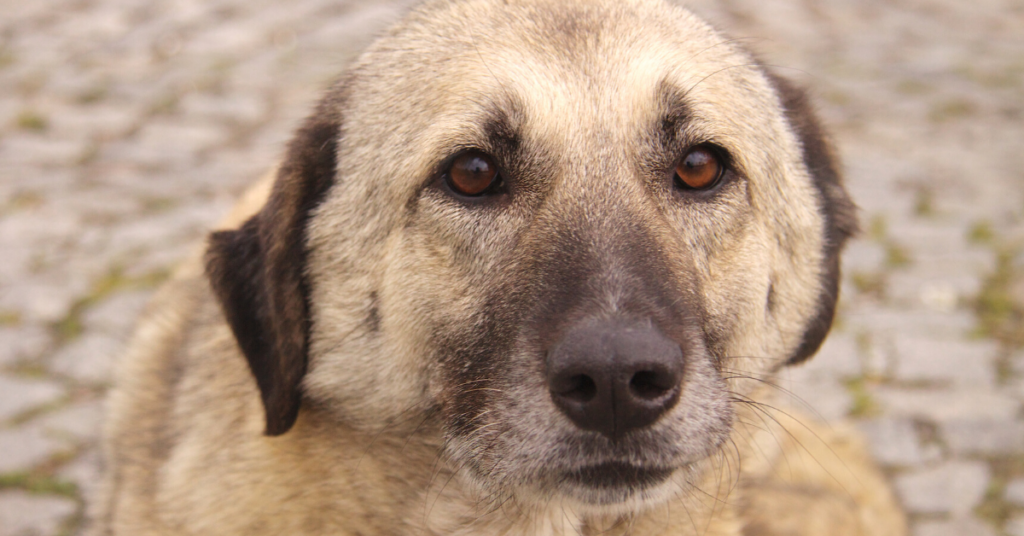
Maggots in dog poop are caused by worms.
Intestinal parasites or worms can be Tapeworms. They have flat bodies made up of segments, they are white, and can be 250 cm long.
You will only find tapeworm segments in the dog feces or vomit, usually moving, and look like a grain of rice when dry. You can also find them clinging to the fur around your dog’s anus.
The second type of worms are Roundworms, which are off-white or tan, similar to spaghetti, and range between 8-18 cm. They can be vomited or found in stool in highly infected dogs and cats.
Another type of worm is Hookworms or Whipworms. These worms attach themselves into the dog’s intestinal lining. They are very small and hard to see, about 2 to 3 inches long. However, if they were seen, this means there is a heavy infestation.
Most of the time you won’t be able to see the worms, but your dog may have worm eggs which can’t be seen with the naked eye. But if there is a very large worm infestation, adult worms will exit with the stool.
If you notice either of these worms in dog poop, or clasping to the fur around your dog’s anus, it’s a good time to call your vet.
How Do Dogs Get Worms?
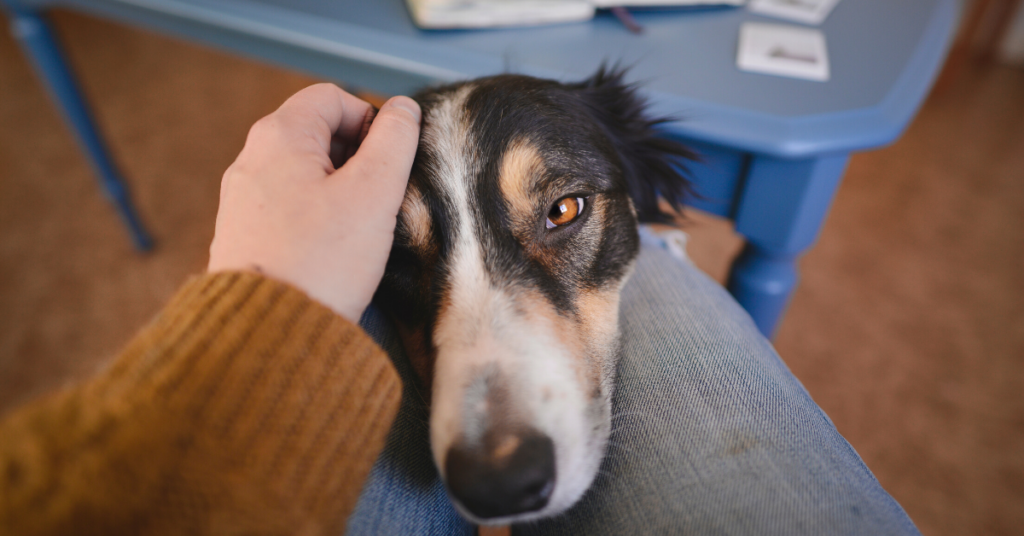
You’re probably wondering how did worms get into my dog’s poop? Worms can get there in different ways.
Maggots in dog poop can be alarming but they’re very treatable.
Dogs can get tapeworms by eating fleas that are carrying tapeworm eggs, or from contaminated soil or stool. These eggs can be easily ingested and develop inside the dog.
Roundworms can be passed on from the mother’s uterus or milk, which causes puppies to have roundworms in their stool.
So it’s important to call your vet to get the right treatment, because roundworms can prevent growth and even cause death by blocking intestines.
Additionally, the feces of infected animals infect the soil for years and affects other animals who come in contact with that soil. This is why dog owners should always pick up the poop after their dog.
Signs Your Dog Has Worms

Seeing worms in your dog’s poop is the most obvious sign, which requires a visit to the vet.
However, there are other signs that your dog has worm eggs and can’t be seen with the naked eye.
These signs include:
- Presence of blood or mucus in the stool
- Diarrhea
- Vomiting or loss of appetite
- Abdominal pain or discomfort
- Weight loss and hair loss
- Dragging their bottom or excessive licking of the anus
If you notice any of these signs on your dog, it’s best to call your vet and get the necessary tests.
Treating Worms
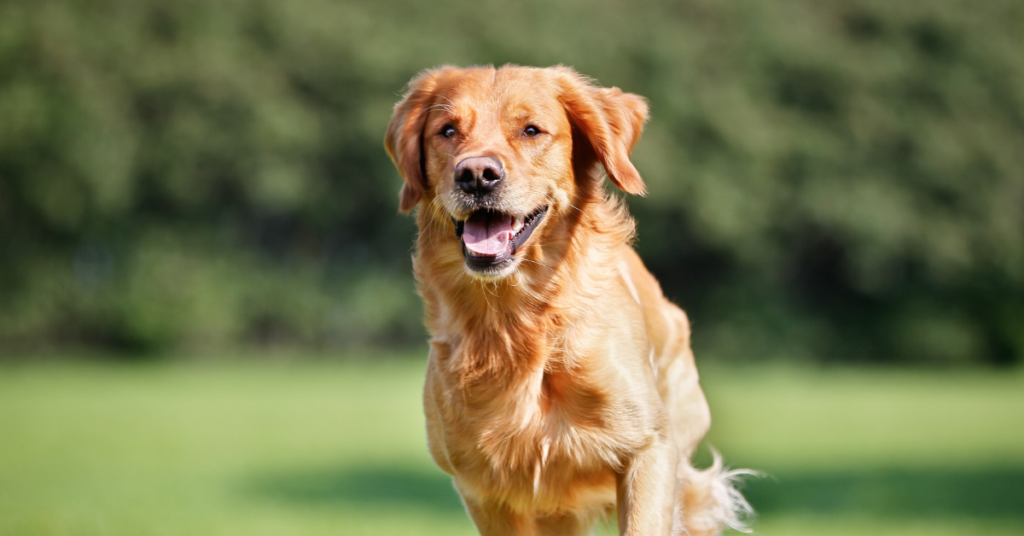
Your veterinarian is the one who knows what’s the right treatment for your dog depending on the worms type.
He will recommend you to bring a stool sample for testing to confirm the types of worms, in order to choose the right deworming treatment.
The deworming process includes prescribing a poisonous medicine to the worms but safe for the dog. The medication is given orally, or by injection. It requires at least two doses and sometimes up to six doses. There is a two week gap between each dose.
The first dose will kill the current worms and the second dose will kill those hatched from eggs in the intestine.
You may still see some worms in your dog’s poop after taking the deworming medicine. It is a normal reaction of removing the now dead worms from the dog’s body.
Additionally, your vet will recommend an annual fecal matter exam to make sure your dog is free of worm eggs before maturing into adults. Specially, puppies should have a frequent deworming schedule, until they are old enough to take preventatives.
How to Prevent Worms

The first step to prevent your dog from having worms is basic hygiene. Always pick up your dog poop, in public spaces, or in your own private yard, to prevent other dogs from eating his poop, or contaminating the soil.
Contaminated soil causes your dog to get worms, because worm eggs stick to your dog’s feet, and when the dog grooms himself, they enter through the mouth.
You can also prevent worms by minimizing direct contact with other dogs or animals, and keeping your dog away from other animals feces.
The best way to prevent and treat worms is using a worm and intestinal parasite preventative. You should also use a flea and tick preventative to prevent worms and other diseases caused by these pests.
To avoid passing worms to yourself or other humans, always collect the feces with gloves and wash your hands properly.
Consult your vet on the best preventative to use to prevent worms and keep your dog healthy.
When to See a Veterinarian
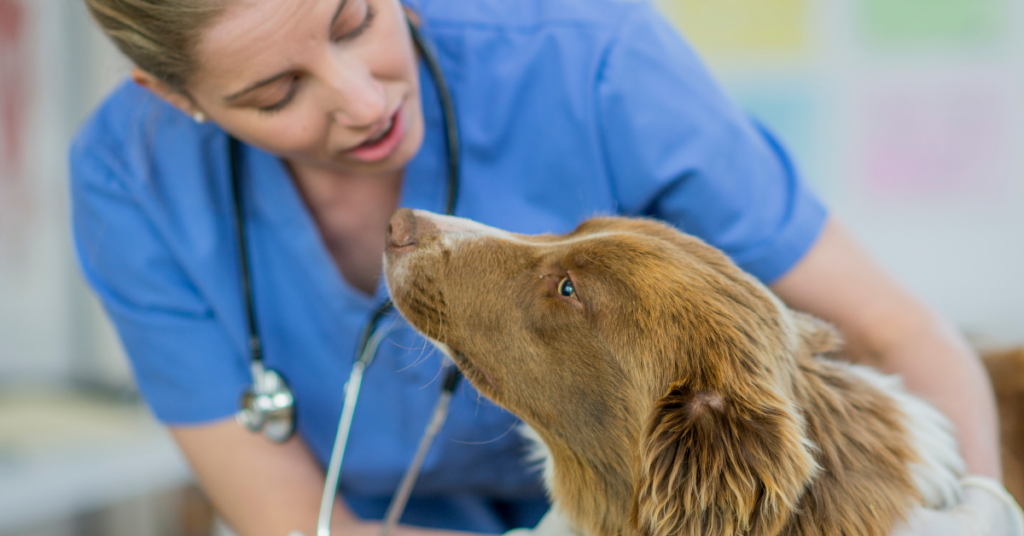
If you happen to peek at your dog’s poop and notice worms with your naked eye, it’s better to call your vet, to help identify the type of worms and recommend the right treatment.
However, your dog may have worm eggs, or Whipworms which are too small to see with the naked eye.
In that case, you can look for other alarming signs, such as blood or mucus in the stool, diarrhea or vomiting, scooting or frequent licking of the genital area.
Visit your vet if you notice any of these signs, to better diagnose your dog, and get the needed treatment.

